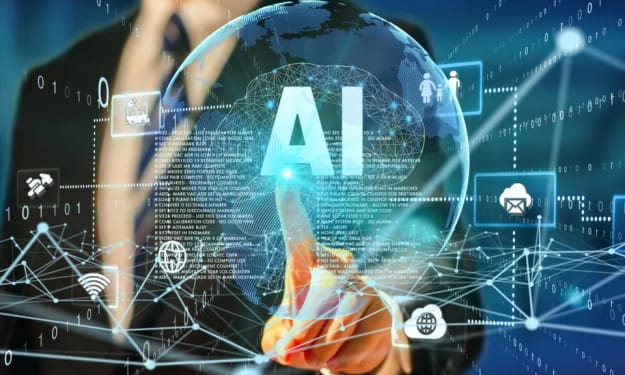Artificial Intelligence and the Future of Work
"Exploring the Impact of AI on the Workforce: Opportunities and Challenges Ahead"

Artificial Intelligence (AI) has been transforming the world of work and has the potential to revolutionize it further in the future. According to a report by McKinsey Global Institute, up to 375 million workers will need to change jobs or learn new skills by 2030 due to the impact of AI on the workforce. While the technology promises increased productivity and efficiency, it also raises concerns about job displacement and a widening skills gap. In this article, we'll explore how AI is changing the future of work and what it means for workers and employers.
AI is the use of machines and algorithms to perform tasks that typically require human intelligence, such as learning, problem-solving, and decision-making. In the workplace, AI is being used to automate repetitive and mundane tasks, analyze large datasets, and improve decision-making. This has led to increased productivity and efficiency in many industries, from healthcare to finance to retail.
One of the most significant impacts of AI on the future of work is job displacement. As machines become more intelligent, they are able to perform tasks that were once performed by humans. This has led to concerns about job loss and a widening skills gap. According to a report by the World Economic Forum, 75 million jobs may be displaced by AI by 2022. While some jobs will be eliminated, new jobs will also be created in industries related to AI, such as data science, robotics, and software engineering.
Another impact of AI on the future of work is the need for workers to learn new skills. As machines become more intelligent, they are able to perform tasks that were once performed by humans, such as data analysis and decision-making. This means that workers will need to learn new skills in order to remain employable. According to a report by McKinsey Global Institute, up to 375 million workers will need to change jobs or learn new skills by 2030 due to the impact of AI on the workforce.
Despite the potential for job displacement and a widening skills gap, AI also presents opportunities for workers and employers. For workers, AI can be used to automate repetitive and mundane tasks, allowing them to focus on more creative and strategic work. For employers, AI can be used to improve decision-making, reduce costs, and increase productivity. For example, in the healthcare industry, AI can be used to analyze medical images and improve diagnoses, reducing errors and improving patient outcomes.
However, there are also concerns about the ethical implications of AI in the workplace. One concern is bias in AI algorithms, which can lead to discrimination against certain groups of people. For example, AI algorithms used in hiring and promotion decisions may be biased against women and people of color. Another concern is the impact of AI on privacy and data protection. As AI algorithms become more sophisticated, they are able to analyze large amounts of data, raising concerns about the security and privacy of personal information.
To address these concerns, there are efforts underway to develop ethical guidelines for the use of AI in the workplace. For example, the European Union has developed guidelines for the ethical use of AI, which include principles such as transparency, accountability, and fairness. Similarly, the IEEE Global Initiative on Ethics of Autonomous and Intelligent Systems has developed a set of ethical principles for the design and use of AI systems.
In conclusion, AI is transforming the future of work and has the potential to revolutionize it further in the coming years. While it presents opportunities for increased productivity and efficiency, it also raises concerns about job displacement and a widening skills gap. To address these concerns, it is important for workers, employers, and policymakers to work together to develop strategies for the responsible use of AI in the workplace. By doing so, we can ensure that AI is used in a way that benefits everyone and leads to a more prosperous and equitable future of work.





Comments (1)
Good job 👌